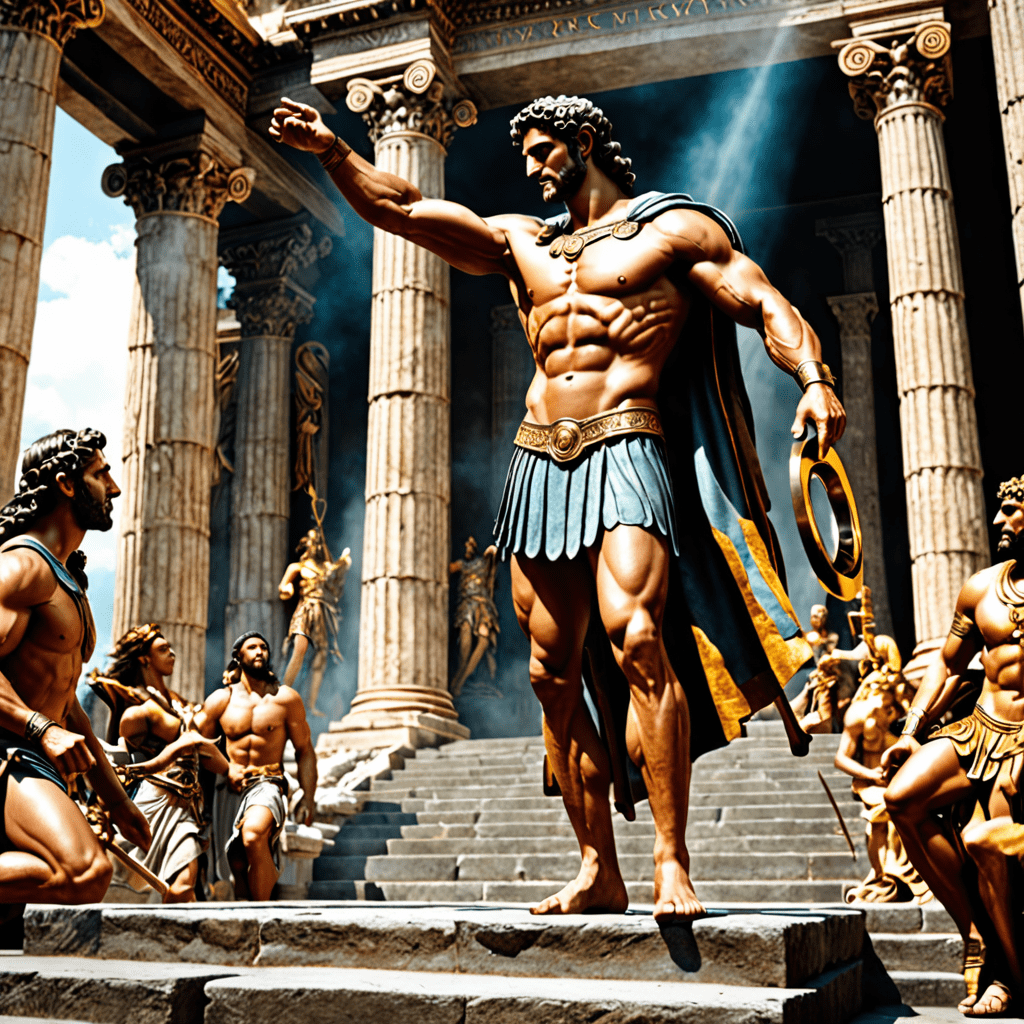Mythical Islands: The Sacred Places of Ocean Legends
Introduction to Mythical Islands
Mythical islands have fascinated humanity for centuries, serving as sacred places steeped in folklore and legend. These islands often symbolize more than just land; they represent the mysteries of the ocean, the unknown, and the possibilities of human imagination. Across various cultures, oceanic myths have played a significant role in shaping beliefs, traditions, and narratives. This article will explore the cultural importance of mythical islands, delve into notable examples such as Atlantis and Avalon, and examine the intersection of myth and geography.
The Cultural Importance of Islands in Mythology
Islands have long been viewed as symbols of sanctuary and mystery across different cultures. They often represent a departure from the ordinary world, serving as a backdrop for transformative experiences and divine encounters. The significance of islands in mythology can be seen in various traditions:
- Polynesian Cultures: Islands are often seen as sacred grounds inhabited by gods and ancestors.
- Celtic Myths: Islands like Avalon are depicted as realms of magic and healing.
- Native American Legends: Many tribes hold islands as sacred spaces for rituals and gatherings.
Moreover, islands frequently appear in creation myths, symbolizing the birth of the world or the emergence of humanity from the sea. This connection highlights the dual nature of islands as both physical landscapes and metaphysical realms.
Atlantis: The Legendary Lost Civilization
The myth of Atlantis originates from the writings of the ancient philosopher Plato, who described a powerful and advanced civilization that ultimately fell out of favor with the gods and sank into the ocean. The allure of Atlantis has prompted countless theories regarding its possible location, with suggestions ranging from the Mediterranean to the Caribbean.
Over the centuries, Atlantis has become a symbol of lost knowledge and the consequences of hubris. Its enduring legacy continues to permeate popular culture, inspiring literature, films, and even conspiracy theories. The search for Atlantis remains a tantalizing endeavor for explorers and historians alike, fueling imaginations around the globe.
Avalon: The Enchanted Isle of Arthurian Legend
Avalon, often associated with the legendary King Arthur, is depicted in various tales as a mystical island where Arthur is taken to heal after his final battle. Described as a place of lush beauty and magic, Avalon symbolizes the intersection of the earthly and the divine.
The island’s significance extends beyond its narrative role; it represents healing, rebirth, and the eternal cycle of life. Modern interpretations of Avalon can be found in literature and film, where it continues to inspire stories of heroism and enchantment. Its portrayal as a magical sanctuary resonates with audiences, reflecting humanity’s longing for a place of refuge and restoration.
El Dorado: The Island of Gold and Abundance
The El Dorado myth emerged during the Age of Exploration, when European explorers sought riches in South America. Initially perceived as a city of gold, the legend evolved to include the notion of an island brimming with wealth and resources.
Exploration narratives fueled the myth, leading many adventurers on perilous quests across the continent. El Dorado represents not just a physical location but also the human desire for prosperity and paradise. This legend has influenced cultural perceptions of South American geography and continues to inspire tales of adventure and discovery.
The Isle of Hy-Brasil: The Phantom Island of Irish Folklore
Hy-Brasil is a phantom island in Irish folklore, often described as a land of abundance and beauty that appears only once every seven years. Historical accounts depict it as a place shrouded in mist, adding to its enigmatic nature.
In Irish mythology, Hy-Brasil holds significance as a symbol of the otherworld, a realm where time and reality differ from the mundane. The island’s elusive nature has led to modern-day explorations and artistic interpretations, reinforcing its status as a captivating element of Irish heritage.
Kokiri Island: The Sacred Land of the Gods in Hawaiian Mythology
In Hawaiian mythology, Kokiri Island is revered as a sacred land inhabited by gods and spirits. This island symbolizes creation and the connection between the physical and spiritual worlds. The stories surrounding Kokiri reflect the deep reverence Hawaiians have for their natural environment and the ancestral ties to the land.
Colonization significantly impacted the perception of Hawaiian sacred sites, often leading to the erosion of traditional beliefs. However, the enduring legacy of Kokiri and other mythical islands serves as a reminder of the cultural richness and spiritual depth of Hawaiian mythology.
The Role of Mythical Islands in Literature and Pop Culture
Mythical islands have been a prominent theme in literature, inspiring authors to craft stories that explore human experience and adventure. Notable works include:
- “Treasure Island” by Robert Louis Stevenson: A tale of piracy and adventure that has become a classic.
- “Lord of the Flies” by William Golding: A story exploring human nature set on a deserted island.
In film and television, mythical islands have often been portrayed as mysterious and dangerous places. The influence of these narratives shapes modern interpretations of mythical islands, as they continue to capture the imagination of audiences worldwide.
The Intersection of Myth and Geography: Real vs. Imagined Islands
Some mythical islands have real-life counterparts or inspirations, blurring the lines between myth and geography. For example, explorations and scientific mapping have led to the identification of islands that may have inspired legends like Atlantis and El Dorado.
The fascination with these islands often reflects humanity’s desire to understand the world and its mysteries. As explorers venture into uncharted territories, the quest for mythical islands continues to inspire both scientific inquiry and imaginative storytelling.
Conclusion
Mythical islands serve as sacred places that embody the rich tapestry of human imagination and cultural beliefs. From Atlantis to Avalon, these islands reflect our deepest desires for sanctuary, adventure, and the unknown. As we continue to explore and reinterpret these legends, the allure of mythical islands remains an enduring aspect of our collective consciousness.



